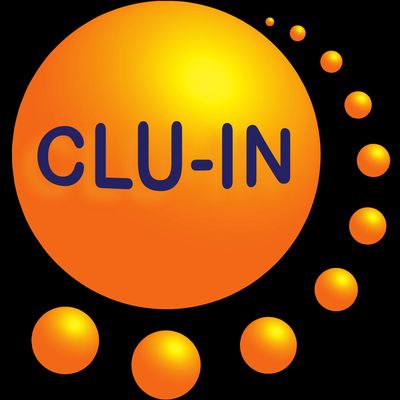Since 1998, The Contaminated Site Clean-Up Information (CLU-IN) website has presented Internet Seminars covering a wide variety of technical topics related to hazardous waste characterization, monitoring, and remediation. For select seminar topics offered since 2012, we are making complete video recordings available through our archives. This feed contains all video seminars archived in the last 12 months. For a complete list of seminars archived since 2000, please visit http://www.clu-in.org/live/archive/. Our Rehabilitation Act Notice for reasonable accommodation is available at http://www.clu-in.org/training/accommodation.cfm. CLU-IN was developed by the U.S. Environmental Protection Agency (EPA) but is intended as a forum for all waste remediation stakeholders. For more information and to view upcoming live offerings, please visit http://www.clu-in.org/live/. For a complete list of RSS feeds available on CLU-IN, please visit http://www.clu-in.org/rss/about/.
http://www.clu-in.org/live/archive
Gesamtlänge aller Episoden: 13 days 3 hours 21 minutes
Superfund Research Program Progress in Research Webinar Part 1: Duke University and University of Arizona (Aug 23, 2018)
This Superfund Research Program (SRP) Progress in Research webinar series highlights promising research from SRP Centers awarded grants in 2017. In this session, awardees from Duke University and University of Arizona will describe their research projects, accomplishments, and next steps. The Duke University SRP Center focuses on early, low-dose exposures to toxicants and developmental impacts, which are usually evident only later in life...
Bioavailability of Contaminants in Soil: Considerations for Human Health Risk Assessment (Aug 16, 2018)
Risk-based cleanup goals are often calculated assuming that chemicals present in soil are absorbed by humans as efficiently as the chemicals dosed during the toxicity tests used to determine regulatory toxicity values (such as the Reference Dose or Cancer Slope Factor)...
Military Munitions Support Services - Q/A Seeding (Aug 15, 2018)
Contractor performance metrics are measured by two blind seeding systems on Munitions Response (MR) projects - Quality Assurance and Quality Control. Quality Assurance (QA) seeding is the primary quality system used by the Government to independently check the Contractor's performance at MR sites. QA seeding consists of Government personnel (or a third-party QA Contractor) burying blind seeds at depths and in locations that allow for easy detection...
Long-term Contaminant Management Using Institutional Controls (Aug 14, 2018)
Institutional controls (ICs) are administrative or legal restrictions that provide protection from exposure to contaminants on a site. When ICs are jeopardized or fail, direct exposure to human health and the environment can occur...
NARPM Presents...Using Bioavailability to Assess Contaminated Sediment Risk: Passive Sampling and Porewater Remedial Goals (PWRGs) (Aug 13, 2018)
This webinar will introduce the use of passive samplers to assess bioavailability and the development of Porewater Remediation Goals (PWRG). Passive sampling devices (PSD) are a technology with growing acceptance for measuring porewater concentrations and assessing bioavailability of contaminants in sediment, particularly for common sediment contaminants such as PCBs, PAHs, chlorinated pesticides and dioxin-like compounds...
NARPM and OSC Academy Presents...NHPA for RPMs and OSCs (Aug 9, 2018)
This webinar provides OSCs and RPMs with an overview of the National Historic Preservation Act (NHPA) and the requirements of Section 106 under CERCLA. The focus will be on EPA's Emergency Response and Removal Program. NHPA applies to your response action if your action constitutes an undertaking and will have a potential effect on a property that is eligible for or included in the National Register of Historic Places...
Superfund Redevelopment Initiative Series: Superfund and Cultural Competence - Building a Foundation for Effective Community Engagement (Aug 2, 2018)
Webinar Flyer(PDF) (1 pg, 1.1MB) EPA staff interact with impacted communities across the country. These communities may represent a broad range of cultures, including cultures based in race/ethnicity, class, place and other forms of identity. Each EPA site team may also represent a diverse range of cultural perspectives, skill sets and differing professional cultures...
SRP Funding Opportunities Webinar (Jul 23, 2018)
The Superfund Research Program (SRP) is holding a webinar to provide information about the new "Superfund Hazardous Substance Research and Training Program (P42)" funding opportunity, RFA-ES-18-002. The RFA was released on July 3, 2018, and the application deadline is December 19, 2018...
Remediation Management of Complex Sites (Jul 19, 2018)
At some sites, complex site-specific conditions make it difficult to fully remediate environmental contamination. Both technical and nontechnical challenges can impede remediation and may prevent a site from achieving federal- and state-mandated regulatory cleanup goals within a reasonable time frame. For example, technical challenges may include geologic, hydrogeologic, geochemical, and contaminant-related conditions as well as large-scale or surface conditions...
Perspectives on the Implementation of Greener Cleanups (Jun 28, 2018)
The practice of implementing greener cleanups to secure protective remedies with a lower environmental footprint continues to mature and expand, with greater levels of experience among regulators, site owners, and cleanup professionals alike. Through this webinar we will hear first-hand from individuals in all three sectors on their experiences with actual sites where greener cleanups have been implemented...
